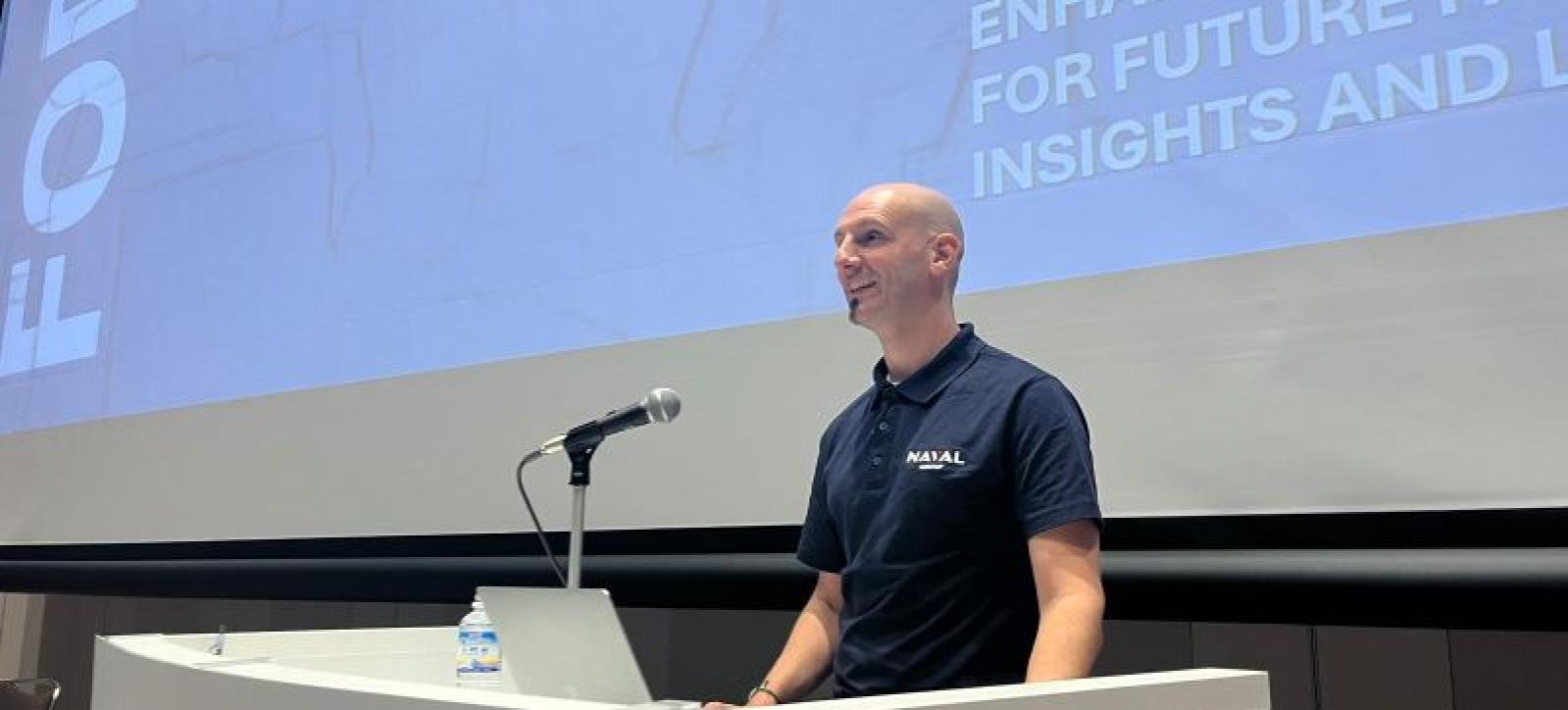Your profile as an expert from an entirely academic background is fairly unusual in an industrial group. Tell us what led you to this position?
Cédric Buche: After obtaining my doctoral degree, I taught at the Brest national school of engineering for twelve years and supervised about thirty theses. I then joined the International Research Laboratory (IRL) Crossing, created recently in Adelaide in partnership with the French National Centre for Scientific Research (CNRS), Naval Group, the French technological university IMT Atlantique and several leading Australian universities to bolster collaborative scientific research around human behaviour, Artificial Intelligence (AI) and autonomous systems.
I had worked on humanoid robotics for CNRS for three years. During this time, the team under my supervision won the RoboCup, an international competition in robotics twice. In 2022, I received an award in the research category as part of “The French of the Year in Australia”, sponsored by the newspaper Le Courrier australien.
Naval Group heard about me through my work at the IRL and recruited me as Director of its CoE last September. I was keen on stepping beyond the strictly academic framework and working on subjects with a more direct connection to the real world.
What does your role as Scientific Director involve?
Cédric Buche: Naval Group finances doctoral work undertaken at the CoE in Adelaide. Their topics of work are defined based on the group’s R&D roadmap, in collaboration with experts from Australian universities supervising these subjects. My role is to ensure that these projects are well-aligned with each other and that they address a broader concern. This important research activity aims to prepare for the future. Autonomous underwater drones, decision-making support tools using augmented reality are two such examples of future technology that Naval Group is keen on developing.
This CoE’s strength lies in the fact that it can make the most of the IRL’s unique expertise in these cutting-edge fields and bolster its skill-set.
In showcasing this work to our partners, I also contribute to promoting Naval Group Pacific.
How do you ensure that the scientific roadmap defined for the Adelaide CoE meets the needs of the group?
Cédric Buche: My work involving the coordination of research conducted in Australia leads me to interact regularly with teams from the Technical Department, and especially the Centre of expertise on energy and onboard power control (CEMEP) in Nantes and the Centre of expertise for information and signature control (CEMIS) in Ollioules.
I am also in touch with the Innovation and Bids Department, in charge of defining R&D roadmaps, validating our approach and our budget, as well as with the Scientific Department and the Artificial Intelligence Manager.

